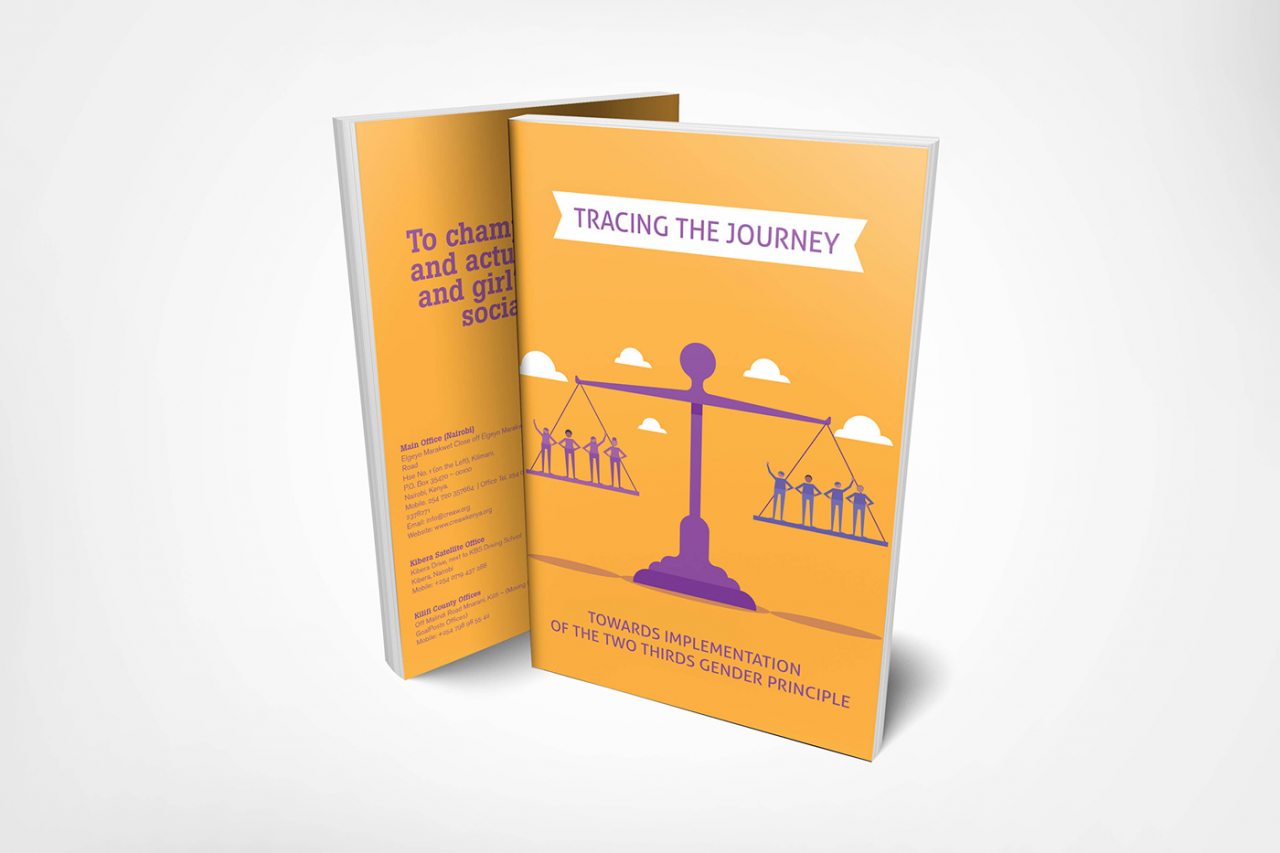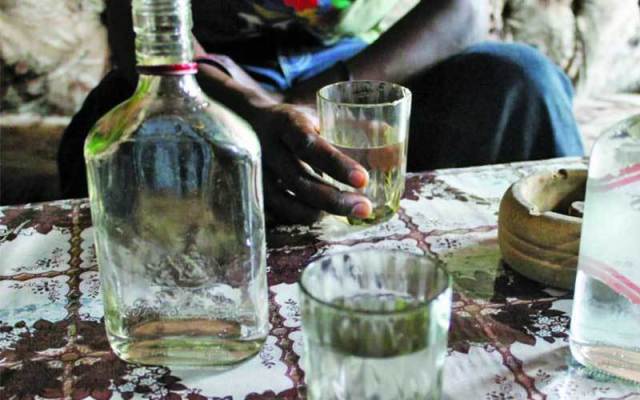About CREAW
Centre for Rights Education and Awareness (CREAW) is a national feminist women’s right Non-Governmental Organization (NGO). Our focus has consistently set women and girl’s rights at the centre of everything we do. CREAW uses bold, innovative and holistic interventions for the realization of women and girl’s rights. Our programs have over the years focused on challenging practices that undermine equity, equality, and constitutionalism; promoting women’s participation in decision making; and deepening the ideology and philosophy of women’s empowerment. We also support movement building to advance the agenda for social transformation, besides preventing, mitigating and responding to Violence against Women and Girls (VAWG).
Background
Under the 2 years Embassy of Sweden through Forum Syd funded Haki Mashinani Project, CREAW seeks to strengthen accountability and implementation of national laws and policies on Gender Based Violence (GBV) in order to better prevent and respond to GBV among women and men in Nyeri and Kitui Counties. This will be realized by improving the capacity and action by women led accountability groups and Community Based Organizations to advocate for stronger accountability and implementation of GBV laws and policies and by Increasing gender sensitivity, responsiveness and coordination of GBV services by public authorities in Nyeri and Kitui counties by 2021.
Strategies employed by the project include skills building and capacity strengthening as well as public policy advocacy by women led accountability groups; public awareness campaigns, to address citizen apathy and increase demand for accountability of public authorities on implementation of laws and policies that address violence against women and girls; coalition and partnership building with state and non-state traditional actors; monitoring reflection and learning forums as well as documentation and dissemination of best practices.
Purpose of the Consultancy
CREAW wishes to hire the services of a qualified consultant to carry out a Multi-sectoral Needs Assessment to provide preliminary understanding of the situation and the needs of the project stakeholders. The information will enable CREAW identify the exact conditions existing at the start of the project and enable us measure the degree and quality of change during project implementation in line with the project’s outcome journal. The consultant will perform the following tasks:
- Outline structural, systemic and environmental challenges limiting effective implementation of gender based violence laws in the two counties.
- Identify the levels of inclusion of women in decision making around addressing gender based violence.
- Outline extent of community apathy in addressing Gender based violence
- Provide comparative data on community perceptions on accountability by public authorities implementing Gender Based Violence laws and policies.
Main Tasks of the Consultancy
The consultant is expected to undertake the following tasks:
- Carry out a desk-review of relevant literature and project documents prior to the implementation of the assessment.
- Develop an inception report, detailing the assessment design, methodology, tools, work plan schedule and budget to carry out the assignment in each county.
- Lead data collection in the field including: designing and leading key informant interviews and focus group discussions; monitoring and ensuring data quality and research ethics are applied.
- Develop and submit the first draft of the assessment report and debriefing to CREAW. The reports should be comprehensive and provide detailed specific findings within each sector, providing key recommendations for implementation.
- Submit the final assessment report to CREAW office. The data collection tools used in the assessment should be submitted together with the report.
Required Skills and Experience of individual
The capacity development experts/trainer will be required who has qualification and experience as follows:
- Advanced university degree in sociology, gender social work or other social sciences, public/community health, or related field with minimum of 5 years of relevant professional experience
- Demonstrated experience in the development of designing training, developing manual and solid understanding of adult learning principals.
- Prior training in gender and GBV issues and their application in development settings.
- Experience in designing, facilitating participatory training and workshop for diverse groups
- Familiarity with international standards, policies and tools related to GBV including GBV Guidelines, protocols.
- Knowledge and experience of essential service package and other case handling approaches from GBV survivor centric approach.
- Excellent interpersonal, problem-solving and team skills, and the ability to work with a range of stakeholders to effectively negotiate and build consensus to achieve constructive outputs
- Fully proficient in the following software applications: Word, Excel, and Power point.
- Experience working with the Government system would be an asset.
- Experience in GBV /violence against women & children training and developing gender responsive and survivor centred training manual, materials would be an asset.
Time-frame
The assignment is expected is expected to take a maximum of 10 days, which includes desk-review, preparation, and implementation, report-writing.
Role of CREAW
CREAW will provide the logistics and programme documents and be the link between the consultant and the project sites. CREAW will also review tools and provide support in the assessment process including venues for discussion and mobilize the required persons for interviews. The consultant will be responsible for guiding the entire Assessment process and all other specific responsibilities as stipulated in the TOR.
Expected Profile of the Lead Consultant
The lead consultant is expected to hold the following qualifications in order to be eligible for this position:
- The lead consultant must have a technical background in political science, economics, law, social science or others as may be relevant (at a minimum of Master’s Degree level) (Essential).
- A demonstrated high level of professionalism and an ability to work independently and in high-pressure situations under tight deadlines.
- The lead consultant must have demonstrated experience and expertise in designing and managing Rapid Assessment studies for similar projects and in delivering agreed outputs on time and within budget. (to provide copies of reports similar work in the last 3 years)
- Experience and knowledge of governance, human rights, gender and participatory development Programmes. (Essential)
- Experience of working with local communities and non-governmental organizations. (Essential)
- Excellent writing, editing, attention to detail and organizational skills (Essential)
- Fluency in English and Kiswahili. (Essential)
Mode of Application
Applicants should submit Technical and Financial proposals electronically in PDF format with subject line clearly marked “Consultancy for Multisectoral Rapid Assessment” on or before 22nd June 2019 via email to consultancy@creaw.org
All applicants should include the following:
- Cover letter
- Technical proposal: The technical proposal should include;
- Brief explanation about the lead and associate consultants with particular emphasis on previous experience in this kind of work
- Understanding of TOR and the task to be accomplished
- proposed methodology
- draft work/implementation plan
- Copies of reports of previous work conducted.
- A written submission on understanding of TOR, methodology / approach the consultant will use; time and time-bound activity schedule, financial issues.
- Organizational (if it is a company applying) or personal capacity statement (if it is an individual)
- Resume and references.










